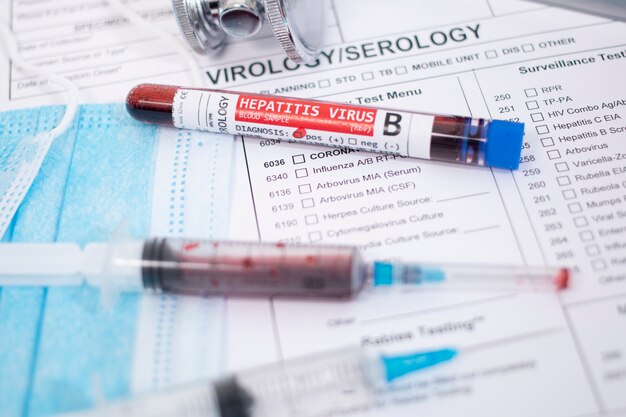Understanding the Spread: Measles Outbreaks Around the Globe
The presence of measles outbreaks continues to be a significant concern worldwide. Despite being a vaccine-preventable disease, measles has seen a resurgence in several regions, causing alarm among health experts and the general public alike. But what exactly is driving these outbreaks, and where are they most prevalent? Let's delve into the dynamics of measles outbreaks globally, exploring the factors contributing to their spread and what measures can be taken to halt their progress.
What is Measles?
Measles is a highly contagious viral disease primarily affecting children but can impact individuals of all ages. It spreads through respiratory droplets from coughs and sneezes and can remain infectious in the air for up to two hours after an infected person leaves the area. Recognizable symptoms include fever, cough, runny nose, inflamed eyes, and a distinctive red rash that spreads over the body.
The Impact of Measles
- Complications: Measles can lead to severe complications, such as pneumonia, encephalitis, and even death.
- Immunity Duration: Those who recover from measles gain lifelong immunity.
Current Global Hotspots for Measles Outbreaks
Africa: A Persistent Challenge
Africa continues to grapple with high incidence rates of measles outbreaks. Several factors contribute to this:
- Vaccine Accessibility: In some African regions, access to vaccines is limited because of inadequate health infrastructure.
- Public Awareness: Health education can sometimes be insufficient, leading to lower vaccination rates.
- Political Instability: Conflict zones often face disrupted healthcare services, making routine vaccinations difficult.
Asia: High Population Density and Measles
Countries in Asia, particularly India and Pakistan, have experienced significant outbreaks due to:
- Dense Populations: High population regions can facilitate the rapid spread of the virus.
- Vaccination Gaps: Areas with incomplete vaccination coverage are particularly vulnerable.
Europe: The Controversy of Vaccine Hesitancy
Europe has seen resurgence partly owing to vaccine hesitancy, a growing concern in more developed regions:
- Misinformation: Spread of misinformation about vaccine safety has led to reduced uptake.
- Policy Challenges: Variability in vaccination policies and enforcement affects coverage rates.
Americas: Maintaining Vigilance
While measles was declared eliminated in the Americas in 2016, occasional outbreaks stem from:
- Imported Cases: Travel and trade can introduce the virus to populations.
- Local Clusters: Unvaccinated communities can become disease hotspots.
Addressing Measles Outbreaks: A Multidimensional Approach
Enhancing Vaccine Coverage
To lower the incidence of measles, vaccination coverage must be improved:
- Routine Immunization: Strengthening national immunization programs ensures herd immunity.
- Rapid Response: Quick containment of outbreaks through vaccine campaigns can prevent wider spread.
Combating Vaccine Hesitancy
It’s crucial to address myths and misinformation surrounding vaccines:
- Public Education: Campaigns that provide clear, science-based information can build trust.
- Engagement with Influencers: Collaborating with community leaders can resonate with skeptical groups.
Strengthening Surveillance Systems
Early detection and response to outbreaks prevent extensive spread:
- Data Collection: Comprehensive data on vaccination rates and outbreak incidences can guide health policies.
- Technology Integration: Using digital tools for tracking and predicting outbreaks improves preparedness.
The Role of Global Collaboration
Global initiatives and partnerships play a critical role in combating measles:
- WHO and UNICEF: Organizations like the World Health Organization and UNICEF spearhead multinational efforts to increase vaccine accessibility and education.
- Cross-Border Efforts: Collaborative measures among neighboring countries can reduce outbreak transmission in border regions.
The Future Outlook
The trajectory for measles control is promising if key strategies are implemented:
- Universal Vaccine Coverage: Expanding reach to marginalized communities can drastically reduce outbreaks.
- Continued Innovation: Investing in new vaccine technologies and delivery methods can overcome present challenges.
Empowering Individuals and Communities
Ultimately, empowering individuals through education and access ensures sustainable disease management:
- Community Health Workers: Training local health ambassadors bolsters grassroots education.
- Access to Resources: Ensuring all communities have access to health services and vaccines is essential.
Final Insight: Collective Action is Key
Eradicating measles is within reach if concerted efforts at individual, community, and global levels are maintained. By embracing both preventive and reactive measures, the world can move closer to a future where measles is confined to history.
Practical Summary:
- Stay Informed❓: Know the symptoms and spread patterns of measles.
- Vaccinate💉: Ensure everyone receives their measles vaccinations on time.
- Dispel Myths🚫: Combat misinformation by sharing accurate vaccine information.
- Global Network🌍: Support international collaborations to increase vaccine access.
- Educate Communities👥: Engage in local education initiatives to improve vaccine acceptance.

Related Articles
- Are Measles Deadly
- Can Adults Get Measles
- Can You Get Measles If Immunised
- Can You Get Measles If Vaccinated
- Can You Get Measles If You Are Vaccinated
- Can You Get Measles If You Re Vaccinated
- Can You Get Measles If You're Vaccinated
- Can You Get Measles If You've Been Vaccinated
- Can You Get Measles More Than Once
- Can You Get Measles Twice
